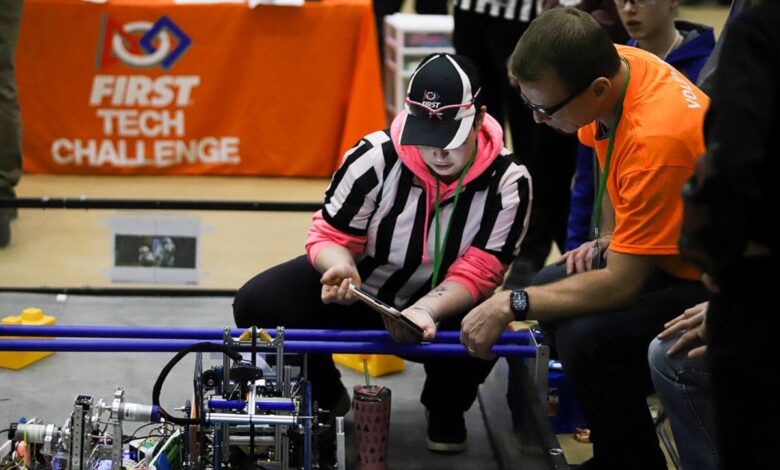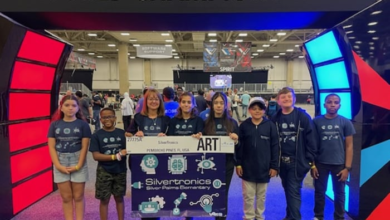Lacombe high school’s robotics club working on a bee-monitoring prototype

As its members have been doing since day one, Lacombe Composite High School’s robotics club continues to break new ground and pick up awards along the way.
The group recently landed an innovation award for a beekeeping monitoring system they are building, and they also have been selected to go to Skills Alberta for Robotics to build a robot that can harvest maple syrup.
The beekeeping system award was handed down from the Calgary-based Tech Futures Challenge, which is part of an organization that encourages students to solve real-world sustainability issues using science and technology, said teacher Steve Schultz, who launched the club nearly 20 years ago.
“We won the most likely to succeed award in March,” he said
“We went down for a pitch competition where we put together a video to explain the issue and what we think we can do to help solve it.”
Schultz is referring to the declining bee population locally and across North America over the past few years.
“We have a beekeeping program here at LCHS, and three years ago all of Alberta faced a climate change challenge where up to 75 per cent of people’s bees, including industry, had their bees die over the winter.
“At the school, we lost all of our bees that year. This year, we lost three of our four hives.
“One of my students in the beekeeping class and the robotics program said why don’t we create a monitoring system that can monitor the conditions inside the hives? It could help to pinpoint why the bees might be dying.”
The club decided to work on a prototype.
“Beekeepers could then make some decisions based on the data, like whether to increase or decrease ventilation, add feed, or add to the insulation.”
They also looked closely into what typically causes bees to die in the winter.
“Three of those conditions we can monitor electronically — temperature, humidity, and carbon dioxide levels.”
Along with the award came enough funding for the team to build two complete prototypes.
“They’ve been busy doing this for the past six weeks, and we will have a prototype competition at the end of May where they will showcase their work.
“It’s also pretty personal because our students want to keep the beekeeping program. But if we keep losing bees, it doesn’t make it as sustainable as it could be,” he explained.
Meanwhile, Schultz said these kinds of robotics competitions have been exploding in popularity, as is reflected in the upcoming Skills Alberta for Robotics event.
“This year, it’s being hosted in Edmonton May 7-9, and the competition we are in is centered around maple syrup,” he added with a smile.
The challenge revolves around, as mentioned, building a robot that could theoretically harvest maple syrup.
“So far, we’ve completed building three of our robots.”
Overall, Schultz couldn’t be happier to see how the club has meant so much to students over the years, and him personally.
“I’m very proud of our students,” he said, adding the team has also garnered all kinds of recognition and awards for their pioneering efforts.
“Students have also been able to go to world championships — one in Houston, one in Anaheim, and the other in St. Louis. So they’ve been able to perform on the world stage with our robots over the years,” he said.
“It’s fantastic to see the innovative spirit, and again that desire to create something. You also can see the confidence that is built through it all.
“I also tell our students that if they want to be prepared for the future, and get a good-paying job, that automation, AI, machine learning, coding, and robotics are entering every one of our fields these days. If you can understand it all, and understand it at a deeper level, you are going to be prepared for that future.
“I’m so excited and privileged to know our school has given these students that incredible opportunity.”



